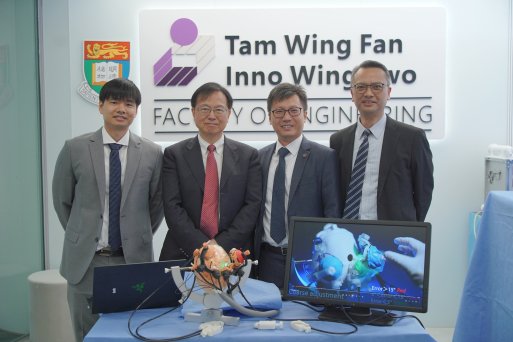
A research team led by Professor Ka-Wai Kwok from the Department of Mechanical Engineering at the University of Hong Kong (HKU) has developed an interactive multi-stage robotic positioner specifically designed for magnetic resonance imaging (MRI)-guided stereotactic neurosurgery.
This groundbreaking technology represents a key breakthrough in MRI-guided stereotactic neurosurgery, allowing for precise interventions. The system is capable of assisting with interventions involving cannula/needle targeting including deep brain stimulation (DBS), for the treatment of movement disorders like Parkinson’s disease. It also facilitates a wide range of therapeutic applications such as biopsy, drug delivery, ablation, and catheter placement within deep brain regions.
The compact and lightweight skull-mounted robot (97 x 81 mm, 203g) is designed to fit most standard imaging head coils. It features custom-made miniature wireless omni-directional tracking markers and a zero-electromagnetic-interference system to facilitate robot registration under real-time MRI.
Led by Professor Ka-Wai Kwok, the engineering team at HKU excels in translating technological innovations into practical applications. With support from HKU's Technology Transfer Office (TTO), they have transferred and licensed six IPs to industrial partners, reaching significant milestones. Notably, their flexible miniaturised robotic system for endoscopic surgery has led to the formation of an HKU and Hong Kong Science and Technology Parks incubated company, which has secured $17 million in venture capital for commercialisation and further development.




